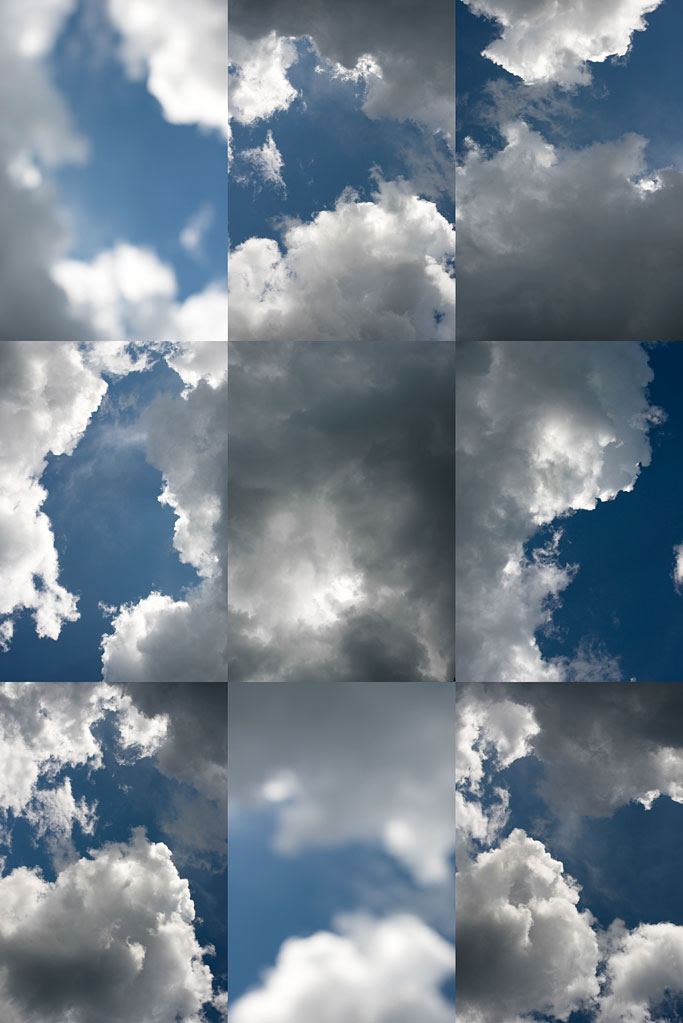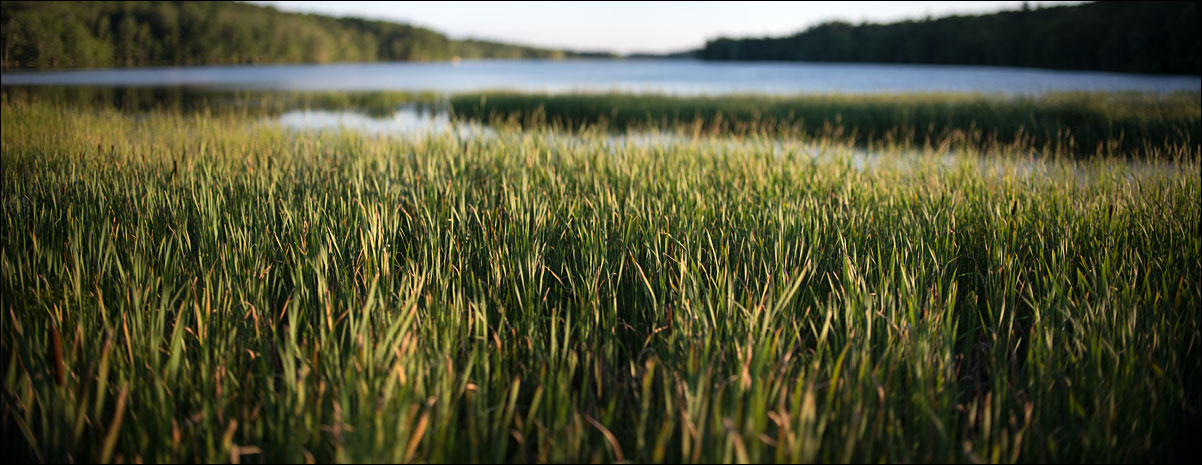 Along with tomatoes and blackberries, we are getting other veggies. On the left are Early Summer Yellow Crookneck Squash. Our beans this year are Kentucky Wonder, the large green pole beans, Provider, the mid-sized bush beans, Masai, the small bush beans, and Blue Coco, the purple pole beans. The small tomato in the picture is Gardener’s Delight. And last are our cucumbers. The round variety is Lemon cucumber and the other is de Bourbonne Cornichon pickling cucumber. Unfortunately, because of a lack of water or inadequate fertilizer, the de Bourbonne did not turn the green it is supposed to be. Click on the image for a larger view.
Along with tomatoes and blackberries, we are getting other veggies. On the left are Early Summer Yellow Crookneck Squash. Our beans this year are Kentucky Wonder, the large green pole beans, Provider, the mid-sized bush beans, Masai, the small bush beans, and Blue Coco, the purple pole beans. The small tomato in the picture is Gardener’s Delight. And last are our cucumbers. The round variety is Lemon cucumber and the other is de Bourbonne Cornichon pickling cucumber. Unfortunately, because of a lack of water or inadequate fertilizer, the de Bourbonne did not turn the green it is supposed to be. Click on the image for a larger view.
Tag Archives: Summer in Maine
Tomato Glut
 Our tomato harvest is starting to reached the late summer glut. It is wonderful thing to see the garden so productive, especially since we were starting these plants indoors in early spring.
Our tomato harvest is starting to reached the late summer glut. It is wonderful thing to see the garden so productive, especially since we were starting these plants indoors in early spring.
The yellows are Yellow Pear (smaller) and Yellow Banana Leg (the three long fruit). The top right red tomatoes are Juliet. The bottom left reds are Heather. And the bottom right is our favorite: Black Cherry. The yellow tomatoes and the Black Cherry are heirloom varieties. Click on the image for a larger view.
Summer Skies
Pleasant Pond
Tomato Harvest 2015
Blackberry Harvest 2015
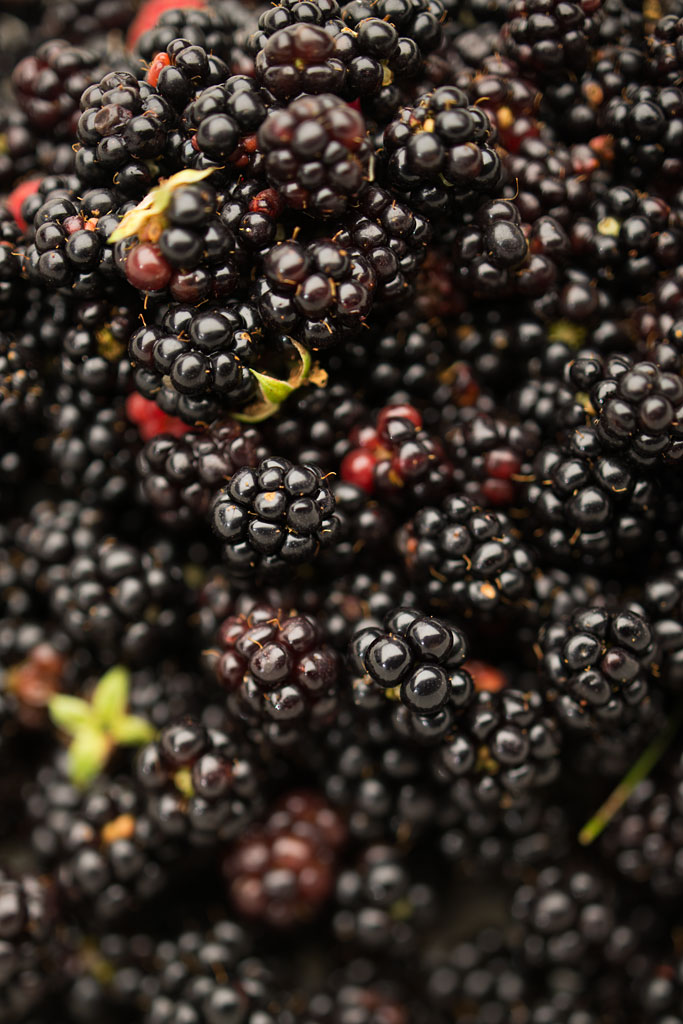 A month ago, our blackberries were green. This week, we began our annual harvest. This usually lasts about a month depending on the size of the crop. It looks like it might be a good year. Click on the image for a larger view.
A month ago, our blackberries were green. This week, we began our annual harvest. This usually lasts about a month depending on the size of the crop. It looks like it might be a good year. Click on the image for a larger view.
Illusion of Optics
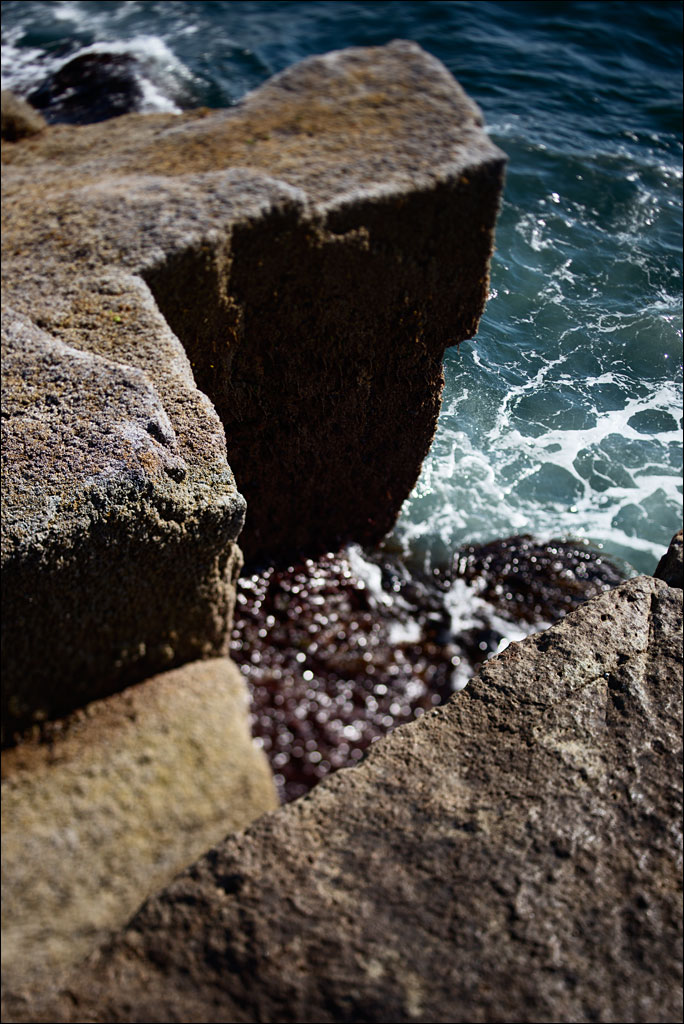 The rocks at Schoodic Point in Acadia National Park. One of the most interesting things about photography is the ability to present the world in a way that a person could not perceive naturally. When a group of objects are in focus, when they appear sharp, it is usually because they are all the same distance from the observer. That does not need to be true for a camera (no Photoshop gimmick here). Click on the image for a larger view.
The rocks at Schoodic Point in Acadia National Park. One of the most interesting things about photography is the ability to present the world in a way that a person could not perceive naturally. When a group of objects are in focus, when they appear sharp, it is usually because they are all the same distance from the observer. That does not need to be true for a camera (no Photoshop gimmick here). Click on the image for a larger view.
Reversing Falls
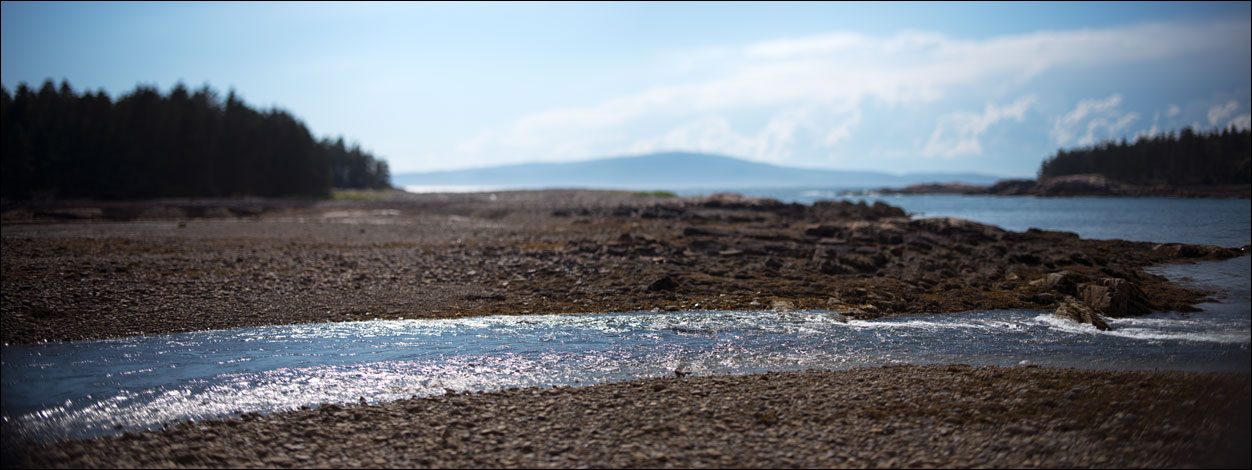 Reversing falls are caused when the water level between one water body and the ocean is different at high and low tide. West Pond on Schoodic Peninsula in Acadia National Park has a reversing falls. This image shows low tide where the land on both sides of the falls, the stream in the foreground, would be submerged at high tide. The trees at the left are on Pond Island, which marks the extent of the high tide. Mt. Desert Island is at the horizon. Click on the image for a larger view.
Reversing falls are caused when the water level between one water body and the ocean is different at high and low tide. West Pond on Schoodic Peninsula in Acadia National Park has a reversing falls. This image shows low tide where the land on both sides of the falls, the stream in the foreground, would be submerged at high tide. The trees at the left are on Pond Island, which marks the extent of the high tide. Mt. Desert Island is at the horizon. Click on the image for a larger view.
Sea and Land
Raspberry Leaves
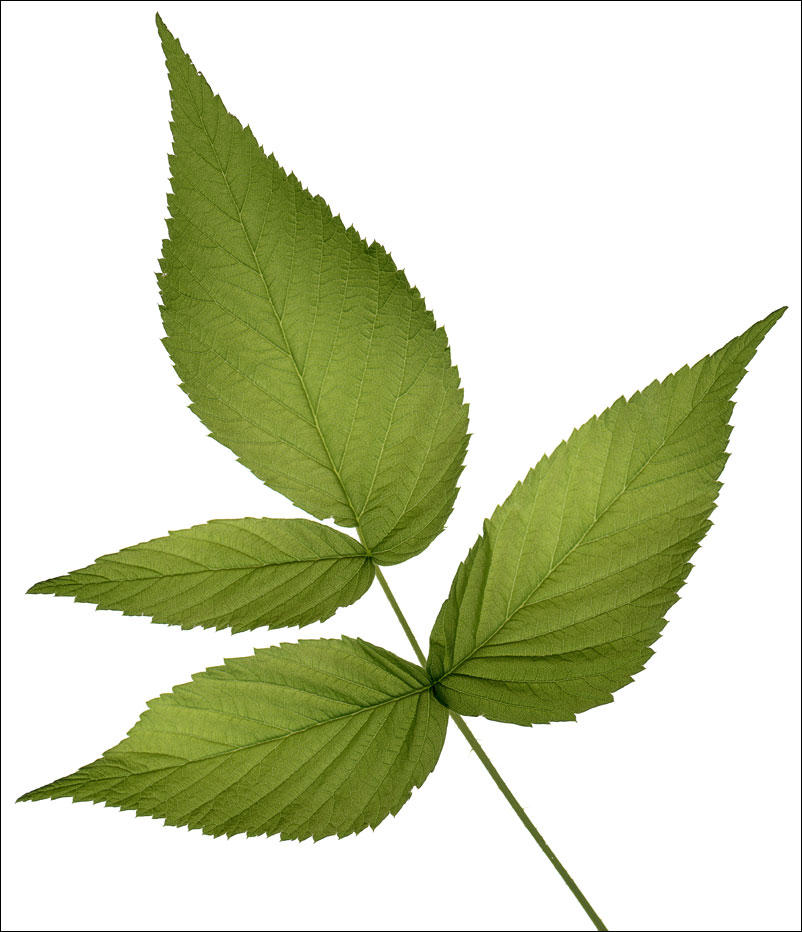 Raspberry-leaf tea is great all year round. In summer, we mix it with mint or Japanese green tea and serve it cold. In winter, we mix it with camomile and drink it hot. Raspberry-leaf tea is claimed to have various medical benefits, particularly for women.
Raspberry-leaf tea is great all year round. In summer, we mix it with mint or Japanese green tea and serve it cold. In winter, we mix it with camomile and drink it hot. Raspberry-leaf tea is claimed to have various medical benefits, particularly for women.
In July, we harvest the new shoots of our wild raspberry. We air dry the leaves on the branches indoors, and finish by placing the leaves in a dehydrator. The tea is light and sweet. Wild raspberry spreads quickly and is considered a weed, but we value it as a herb and source of soft fruit. We have several varieties. Click on the image for a larger view.

